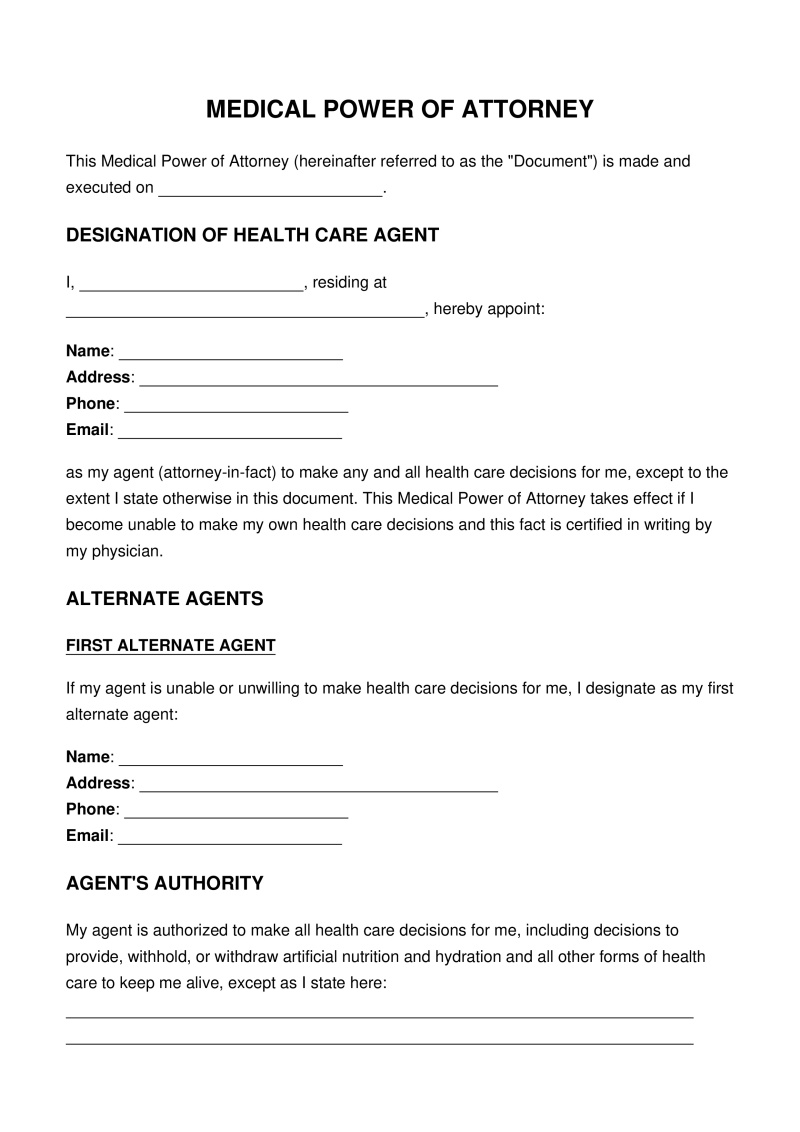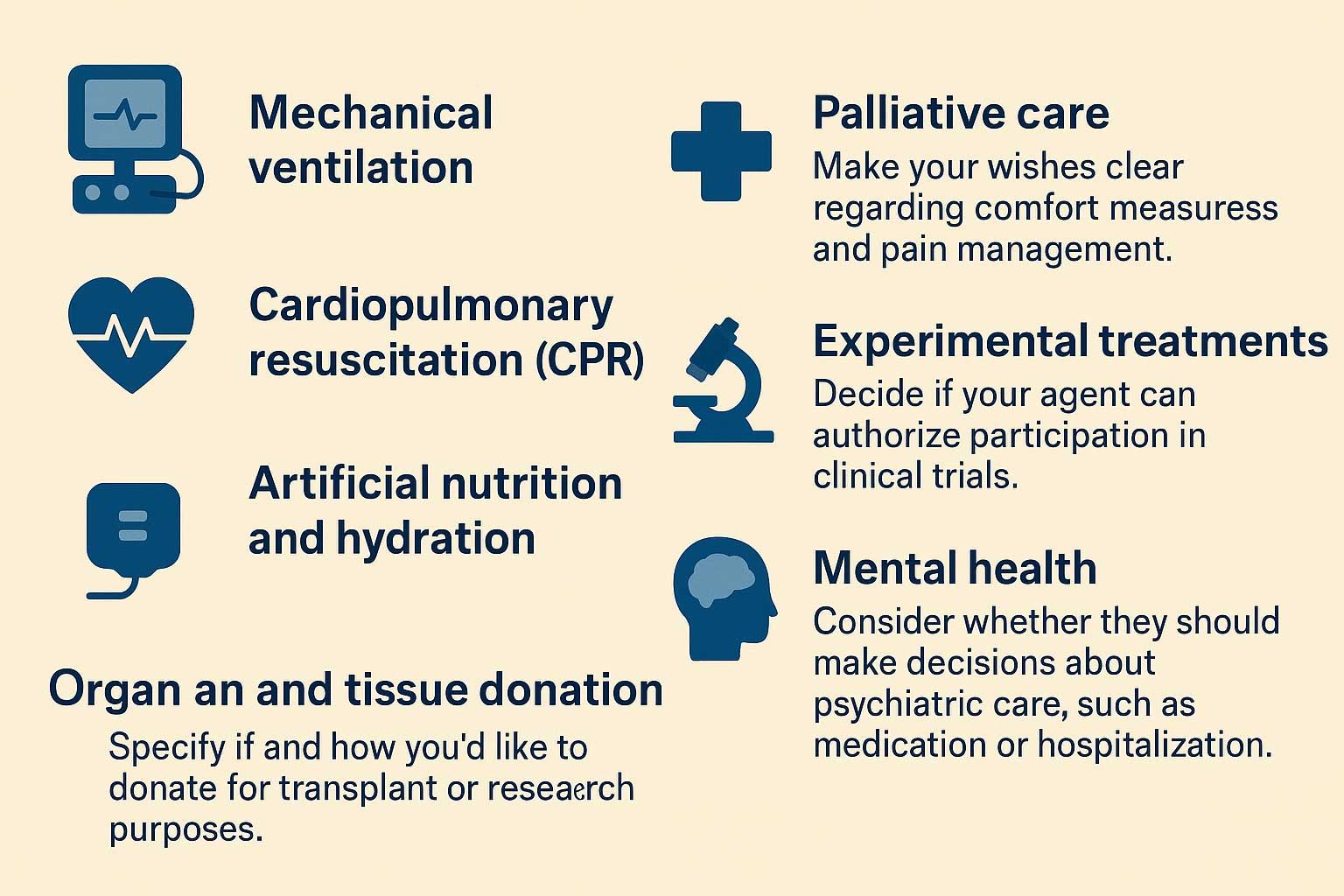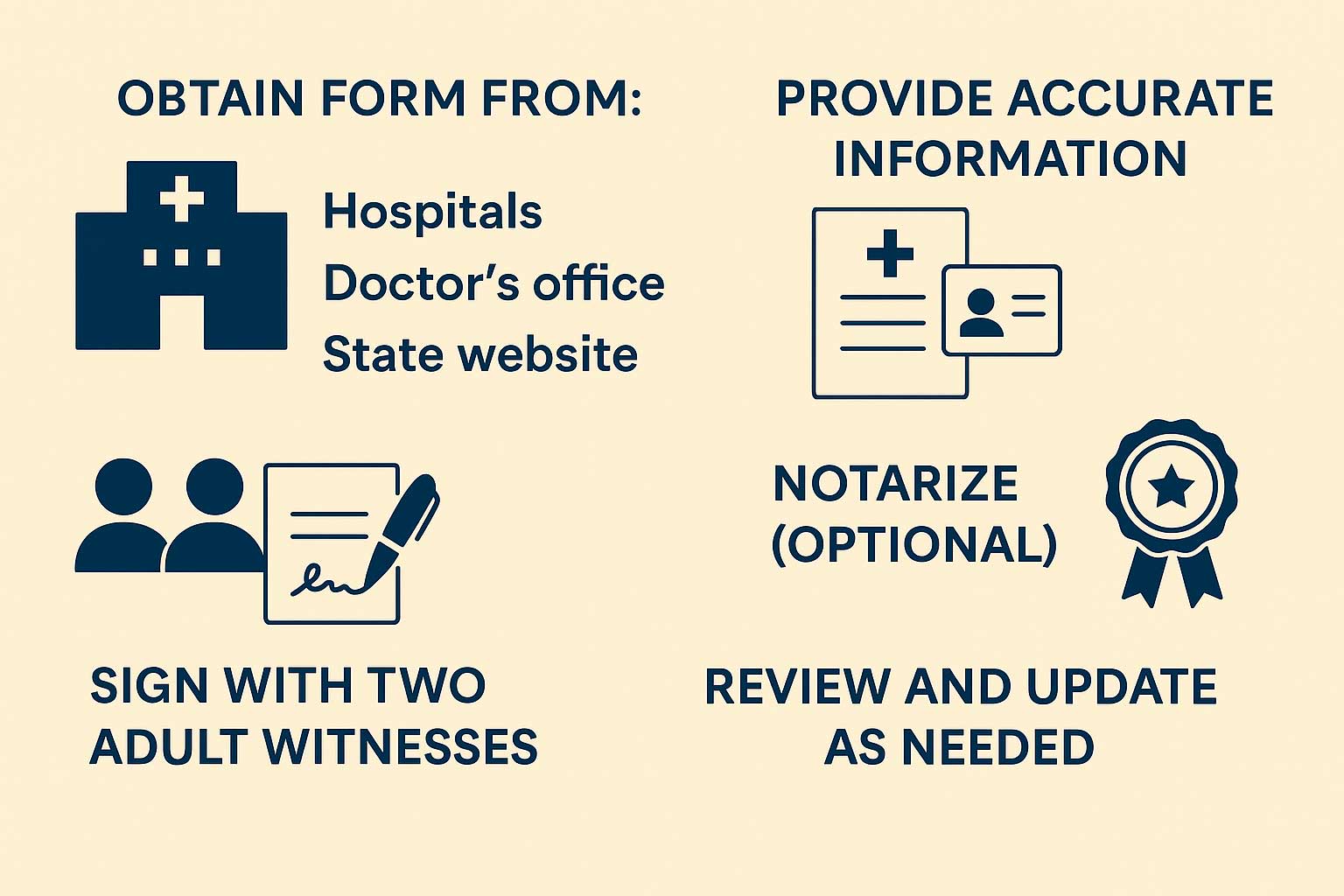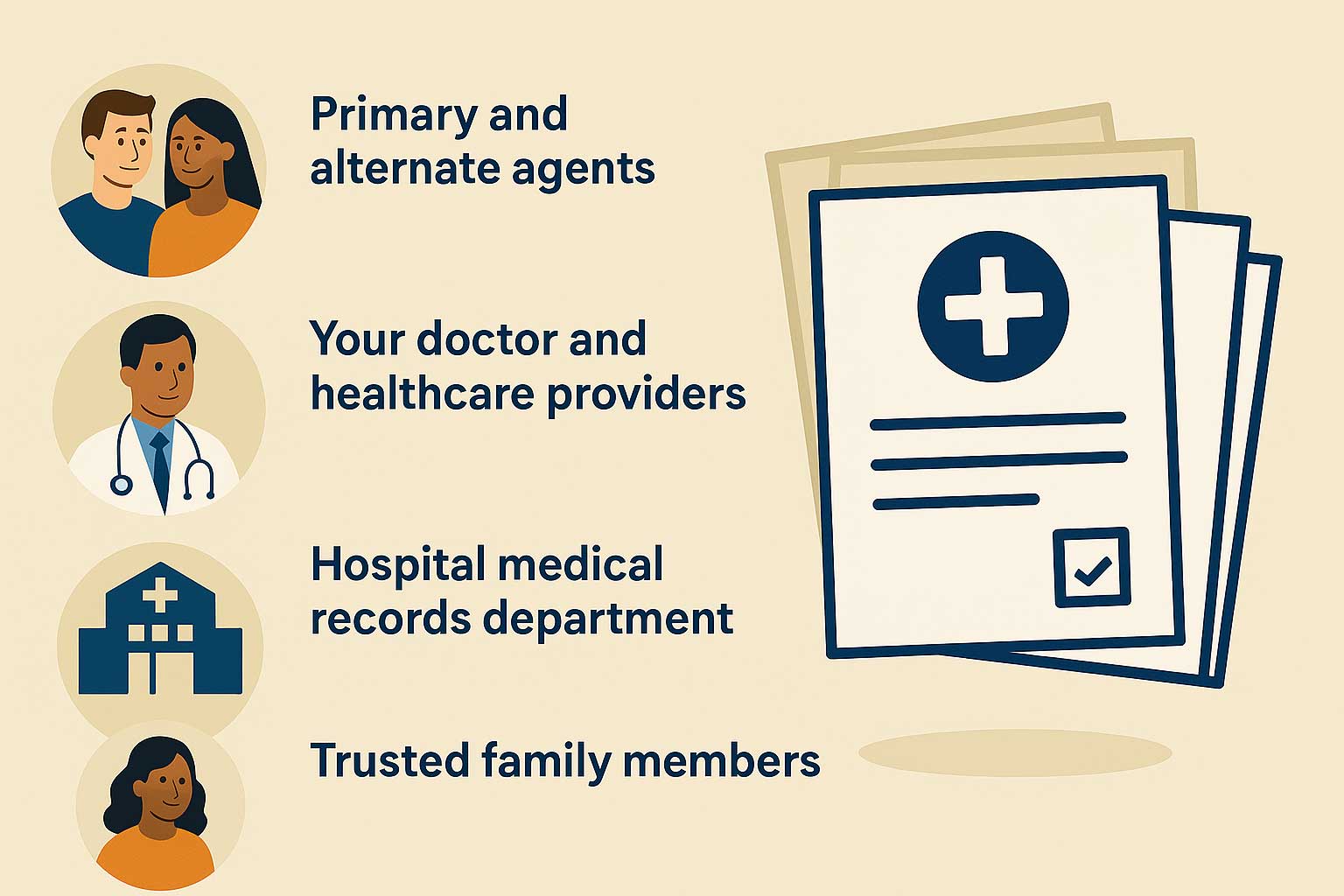Medical Power of Attorney

About this document
A Medical Power of Attorney is a legal document that appoints a trusted person to make healthcare decisions on your behalf when you become unable to make or communicate those decisions yourself.
What is a Medical Power of Attorney?
It designates a trusted individual to make healthcare decisions on your behalf when you cannot do so yourself. This document, sometimes called a healthcare proxy or healthcare surrogate, grants your chosen agent the authority to consult with your doctors, access your medical information, and make critical treatment decisions based on your previously expressed wishes. The appointed agent steps in when you become incapacitated due to illness, injury, or cognitive decline, ensuring your healthcare preferences are honored even when you cannot communicate them directly. Unlike a living will, which typically addresses end-of-life care specifically, a Medical Power of Attorney covers a broader range of healthcare decisions. It can be activated for temporary and permanent incapacity situations.
Key aspects and use cases:
- Ensures your healthcare wishes are followed when you cannot express them;
- Provides clear authority for a trusted person to make medical decisions;
- Helps prevent family conflicts about your medical care;
- Valuable for surgical procedures with potential complications;
- Essential for those with progressive conditions like dementia;
- Can be tailored to grant limited or comprehensive decision-making power;
- Most effective when combined with advance directives detailing your preferences.
How to Get a Medical Power of Attorney
Establishing a medical power of attorney is an important step in ensuring your healthcare decisions are honored, even if you’re unable to communicate them yourself. This process involves choosing the right person to act as your agent and clearly defining the extent of their authority.
1. Selecting an Agent

The most crucial part of creating a medical power of attorney is selecting someone you trust. This person should understand your values, be capable of advocating for your wishes under pressure, and remain emotionally grounded in difficult situations.
Ideally, your agent should live nearby so they can be present quickly in emergencies. Before finalizing your choice, have an open conversation with the person to ensure they're willing to take on the responsibility. It's also wise to name at least one alternate agent in case your primary choice is unavailable when needed.
2. Determining Scope of Authority

Your agent’s authority should reflect your preferences on critical medical decisions. You’ll need to decide whether they can approve or deny interventions such as:
- Mechanical ventilation
- Cardiopulmonary resuscitation (CPR)
- Artificial nutrition and hydration
- Dialysis
Beyond life-sustaining treatments, think about:
- Palliative care: Make your wishes clear regarding comfort measures and pain management.
- Experimental treatments: Decide if your agent can authorize participation in clinical trials.
- Mental health: Consider whether they should make decisions about psychiatric care, such as medication or hospitalization.
- Organ and tissue donation: Specify if and how you'd like to donate for transplant or research purposes.
3. Documentation Requirements

Medical power of attorney forms vary by state, but you can typically obtain them from hospitals, your doctor’s office, or your state health department’s website.
When filling out the form, be thorough—provide accurate details about yourself and your designated agent(s). Most jurisdictions require the document to be signed in front of two adult witnesses who:
- Are not related to you
- Will not benefit from your estate
Although not always required, notarizing the document can add an extra layer of legal validity. Be sure to review and update the form after significant life events or health changes.
4. Distributing the Document

Once completed, distribute copies to everyone who may need access in a medical emergency. This includes:
- Your primary and alternate agents
- Your doctor and healthcare providers
- The hospital's medical records department
- Trusted family members
Discussion
0 commentsComments and opinions expressed by users on this website are for informational purposes only and do not constitute legal advice. They reflect the personal views of the commenters and should not be relied upon as a substitute for professional legal counsel. Always consult a qualified attorney for advice specific to your situation.
Comments (0)
Leave a Comment
No comments yet. Be the first to comment!